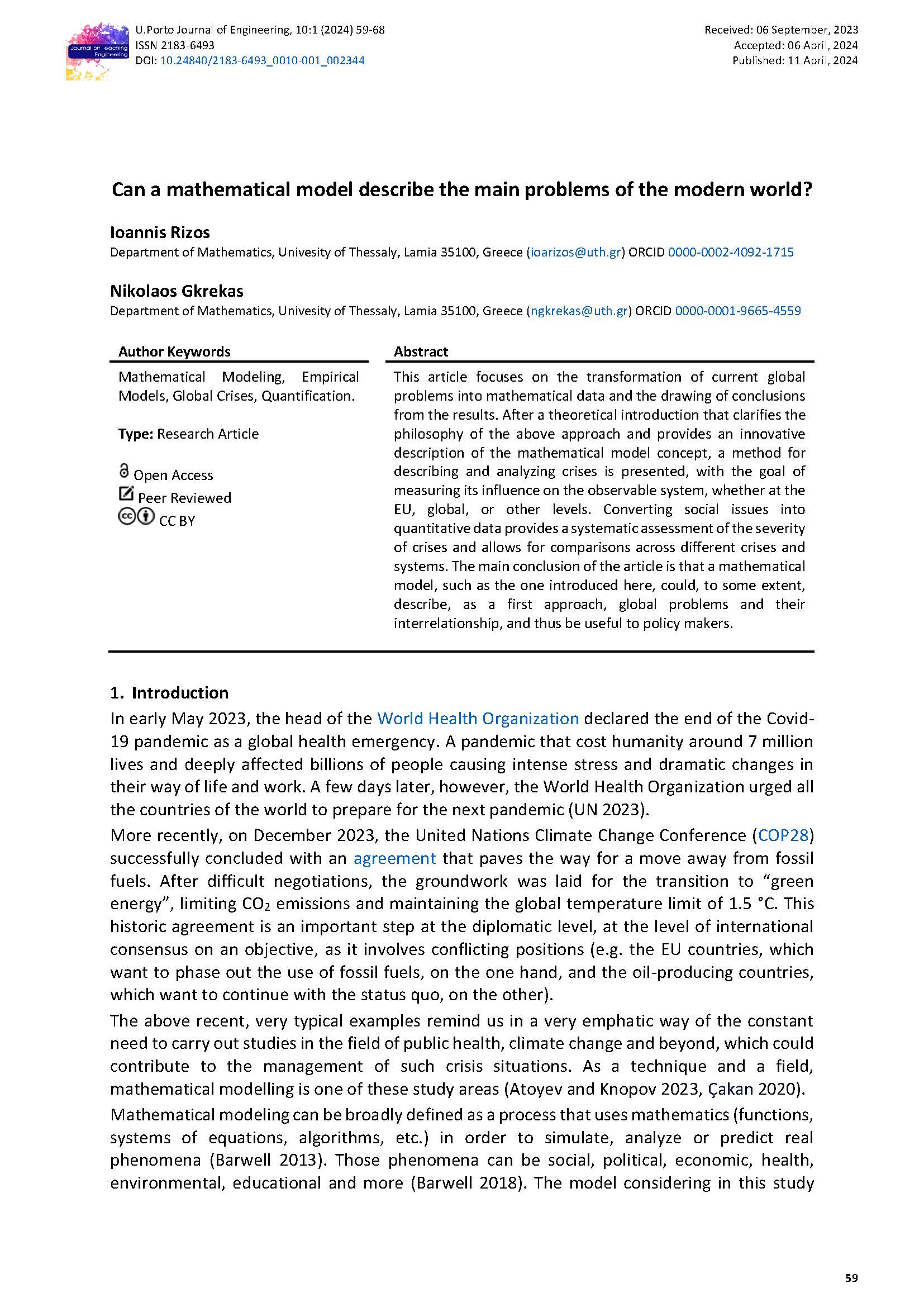Can a mathematical model describe the main problems of the modern world?
Main Article Content
Abstract
This article focuses on the transformation of current global problems into mathematical data and the drawing of conclusions from the results. After a theoretical introduction that clarifies the philosophy of the above approach and provides an innovative description of the mathematical model concept, a method for describing and analyzing crises is presented, with the goal of measuring its influence on the observable system, whether at the EU, global, or other levels. Converting social issues into quantitative data provides a systematic assessment of the severity of crises and allows for comparisons across different crises and systems. The main conclusion of the article is that a mathematical model, such as the one introduced here, could, to some extent, describe, as a first approach, global problems and their interrelationship, and thus be useful to policy makers.
Downloads
Article Details

This work is licensed under a Creative Commons Attribution 4.0 International License.
Authors who publish with this journal agree to the following terms:
- Authors retain copyright and grant the journal right of first publication with the work simultaneously licensed under a Creative Commons Attribution License that allows others to share the work with an acknowledgement of the work's authorship and initial publication in this journal.
- Authors grant the journal the rights to provide the article in all forms and media so the article can be used on the latest technology even after publication and ensure its long-term preservation.
- Authors are able to enter into separate, additional contractual arrangements for the non-exclusive distribution of the journal's published version of the work (e.g., post it to an institutional repository or publish it in a book), with an acknowledgement of its initial publication in this journal.
- Authors are permitted and encouraged to post their work online (e.g., in institutional repositories or on their website) prior to and during the submission process, as it can lead to productive exchanges, as well as earlier and greater citation of published work (See The Effect of Open Access).

